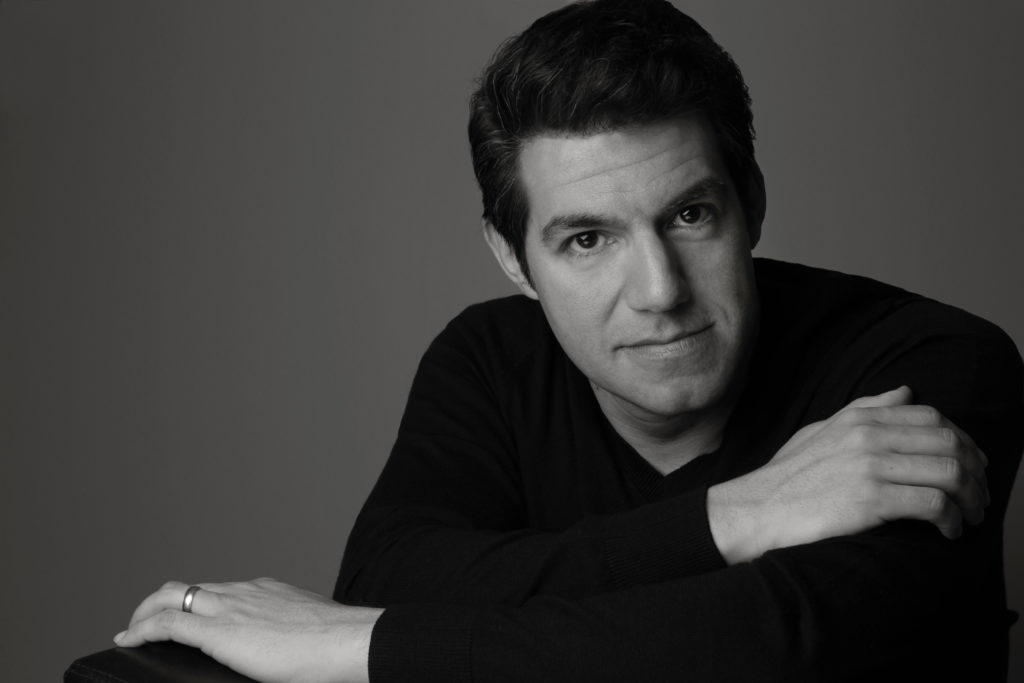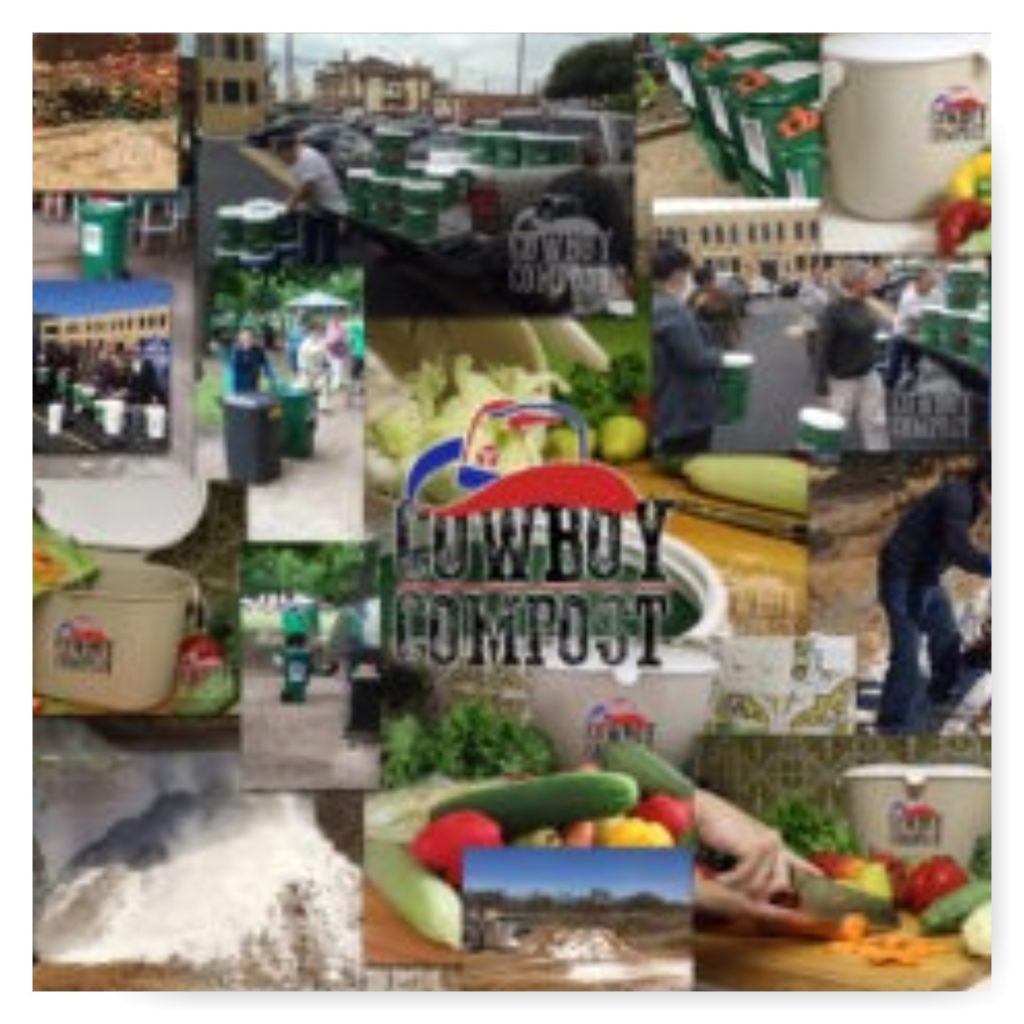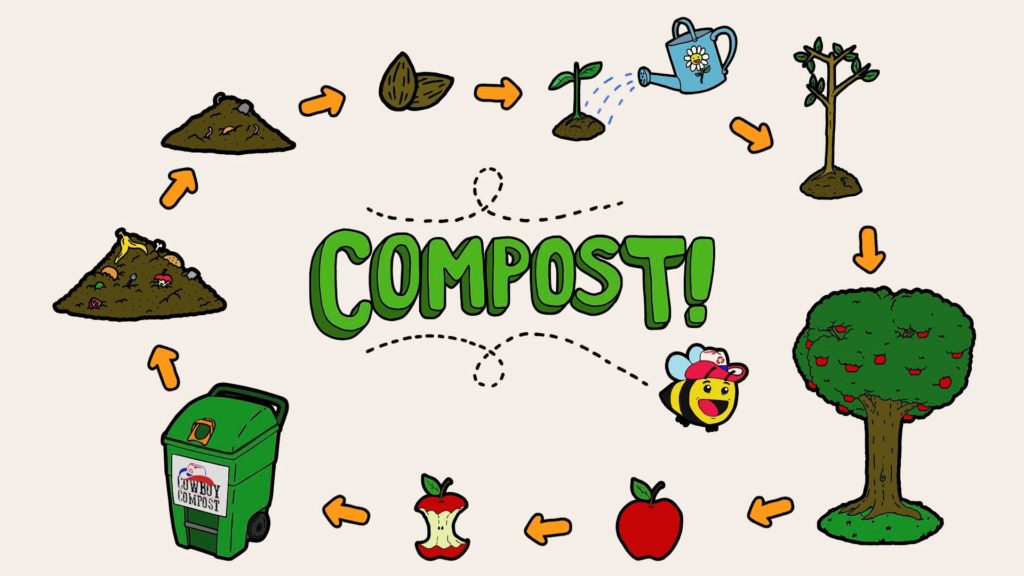From Corelli to Compost: The Story of Cowboy Compost
 Miguel Harth-Bedoya has built an international career as music director of the Fort Worth Symphony Orchestra and principal conductor of the Norwegian Radio Orchestra in addition to various guest conducting and recording engagements throughout the year. Fort Worthians may be less familiar with his passion for conservation, but that is changing.
Miguel Harth-Bedoya has built an international career as music director of the Fort Worth Symphony Orchestra and principal conductor of the Norwegian Radio Orchestra in addition to various guest conducting and recording engagements throughout the year. Fort Worthians may be less familiar with his passion for conservation, but that is changing.
“I’ve been interested in environmental issues for a long time,” Harth-Bedoya told me recently. “Having grown up in Peru and lived in Eugene (Oregon), New Zealand, and here, I’ve developed an appreciation for people’s different behavior toward our environment. Unfortunatley, we’re in danger of leaving our kids a trashed planet.”
Many of us don’t give a second thought to where our trash ends up. Harth-Bedoya isn’t most people. Earlier this year, he followed a dump truck to the city’s landfill, located in south Fort Worth. A manager there told the conductor that Fort Worth’s landfill is the size of 170 football fields and takes in an average of 4,000 tons of waste per day. Upon further investigation, Harth-Bedoya found that no city or private group was tasked with composting organic waste in the area. After speaking to members of Fort Worth City Council, he was told the problem could best be solved through citizen-led initiatives.
That journey led to Cowboy Compost, a collaboration between Harth-Bedoya and Fort Worth business owner and entrepreneur Johanna Calderón. The effort also relies on volunteer help. Participants in the program collect organic waste (egg shells, discarded produce, animal scraps, etc.) in large green buckets. Every two weeks, a driver collects the buckets and leaves a clean, empty replacement. A fee of $7 every two weeks covers the cost of Cowboy Compost’s only employee, the driver. The buckets are delivered to a warehouse where the material is stored. Microbes and bacteria break down the waste material through a natural process until it resembles soil. After one year, participants in the program can collect the rich soil for personal use.
Early last spring, Harth-Bedoya surprised Calderón and several close friends by giving them green buckets and describing how composting works.
“He explained what to compost,” Calderón recalled. “We composted napkins, chicken bones, and salmon. Basically, if it grows it goes. Little by little, he started impacting, and we become more green.”
When the pilot program ended last May, Calderón and other volunteers decided the program needed to continue. A driver was hired and the Cowboy Compost model was adopted. Three restaurants have signed up for the program (including Local Foods Kitchen and Z’s Café) along with 27 local residents.
“We take our environment for granted,” Calderón said. “Miguel showed me anything you do can impact the environment. Be more aware of what you use. I never thought about how many boxes I get from Amazon daily. Now I reuse those boxes. I have a daughter. I want her to enjoy the same environment I had growing up.”
The larger goal of Cowboy Compost, Harth-Bedoya said, is to bring awareness to the community.
“People tell me ‘I’m not going to solve the world’s problem,’ ” Harth-Bedoya said. “You may not, but you can solve your city’s problems one person at a time. I believe in the power of social change. When my family goes to the restaurant, we take a container and take our food scraps back. It’s a great feeling to leave nothing behind that can be thrown away.”
 Edward Brown writes about music, arts and news for a variety of publications. He’s an award-winning writer for the Fort Worth Weekly and blogger for Fort Worth Convention and Visitors Bureau. He has published articles in Musical Opinion (U.K.), Canadian Music Educators Journal, and Clavier Companion,among others. When Brown isn’t writing about music, he’s actively involved in the local music scene as an educator, performer, lecturer, and judge for student music competitions. His professional affiliations include the Chamber Music Society of Fort Worth, where he volunteers as education director, and the Fort Worth Academy of Fine Arts, where he serves on the board and artistic committee. Brown was born in Bowling Green, Ohio in 1982. He is a graduate of the University of North Texas and currently resides in Fort Worth. His favorite leisure time activities include local music concerts and perusing Fort Worth’s growing gastropub scene.
Edward Brown writes about music, arts and news for a variety of publications. He’s an award-winning writer for the Fort Worth Weekly and blogger for Fort Worth Convention and Visitors Bureau. He has published articles in Musical Opinion (U.K.), Canadian Music Educators Journal, and Clavier Companion,among others. When Brown isn’t writing about music, he’s actively involved in the local music scene as an educator, performer, lecturer, and judge for student music competitions. His professional affiliations include the Chamber Music Society of Fort Worth, where he volunteers as education director, and the Fort Worth Academy of Fine Arts, where he serves on the board and artistic committee. Brown was born in Bowling Green, Ohio in 1982. He is a graduate of the University of North Texas and currently resides in Fort Worth. His favorite leisure time activities include local music concerts and perusing Fort Worth’s growing gastropub scene.


 Sign in
Sign in




